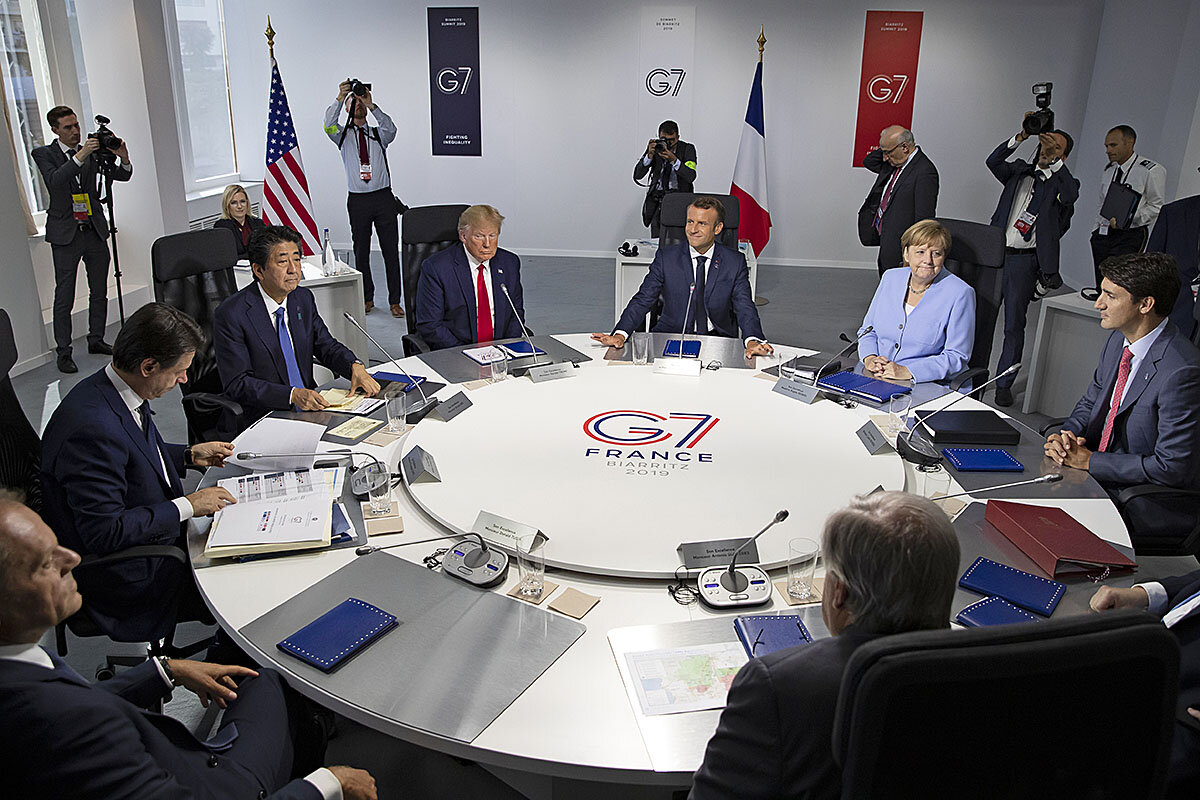What would represent justice in the opioid crisis? This week, a ruling and a settlement offer suggest paths forward, but litigation alone is unlikely to offer a complete solution.
Monitor Daily Podcast
- Follow us:
 Mark Sappenfield
Mark Sappenfield
Welcome to your Daily. Our five handpicked stories touch on the question of responsibility in the opioid crisis, a changing vision of Western leadership, efforts to address an overlooked consequence of megafires, signs of progress on child labor, and Hollywood’s evolving views on age.��
But first, Brexit!
Prime Minister Boris Johnson has just swerved British politics into oncoming traffic. We’ll have more to say tomorrow about Mr. Johnson’s decision to suspend Parliament until Oct. 14. But in essence, he’s daring Parliament to oppose his plans on Brexit.
Mr. Johnson wants to leave the European Union by Oct. 31, no matter what. To prevent that, Parliament now pretty much needs to blow everything up, calling for new elections Mr. Johnson thinks he’ll win.
Maybe he’s right, maybe he isn’t. But one thing is more certain: There is no easy out for Britain on this issue. The country’s vote on Brexit was legitimate. But so, too, is parliamentary power. If they conflict, that’s no mistake. It’s democracy.
If a country can’t make up its mind, no democratic process – be it a prorogue (or discontinuation) of Parliament, a referendum, or an election – can magically concoct a solution. Britain, like the United States, can’t forever avoid the fact that many of its citizens have strongly opposing views that aren’t likely to change soon. That means the only practical way forward, democratically, is in the much harder work of finding common purpose, however distasteful that might seem in a polarized age.













